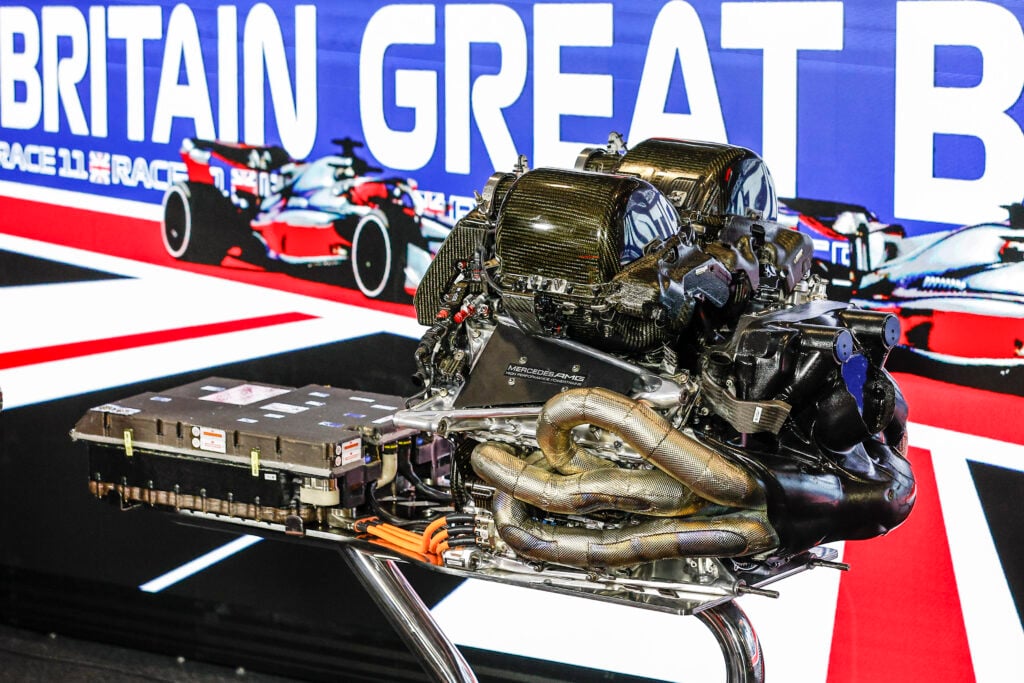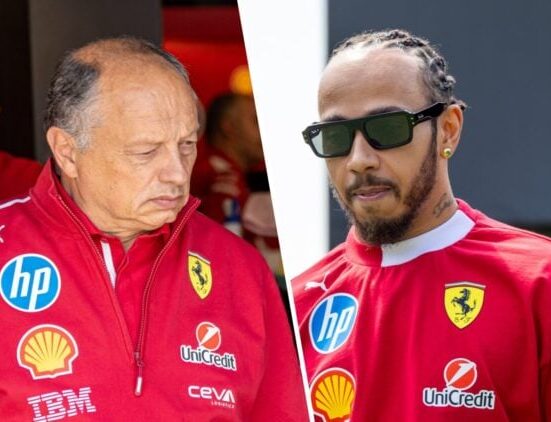Formula 1 is set to overhaul its engine regulations in 2026 but the debate concerning the specifics of the new power unit rules rumbles on, and Red Bull helped to cause it.
Not since 2014 has F1 revamped its engine regulations as much as it will next year when the current 1.6L V6 turbo-hybrid power units first introduced in 2014 are modified. Formula 1 is set on increasing the electrical aspect of the current power split from 20/80 to a 50/50 split.
Removing the Motor Generator Unit – Heat (MGU-H) from the engine formula for 2026 was also key to Honda re-committing to F1 and Audi agreeing to join the grid. Red Bull have even linked forces with Ford, who will be helping the team with its expertise in hybrid technology.
Yet concerns largely founded in the potential of drivers running out of their electrical power has sparked debate about changing the 2026 F1 regulations before they are introduced. The FIA suggested reintroducing V10 engines, as well, but the proposal has for now been halted.

The FIA is ‘telling teams’ it does not want F1 engines to be the ‘performance differentiator’
Now, BBC Sport reports that many in the paddock believe the debate about changing the F1 engine regulations due to arrive next season was even founded in the concern some teams now hold that Mercedes will have the best 2026 F1 engine, with Red Bull especially worried.
Many expect Mercedes will have the best power unit at the start of the new regulations like they did in 2014. Although rival teams have learned from their mistakes a decade ago when they did not invest early enough into the new regulations, the Silver Arrows are well placed.
READ MORE: Everything you need to know about F1’s 2026 engine and chassis regulations
But for how long Mercedes get an advantage, if any, remains to be seen as FIA single-seater director Nikolas Tombazis is ‘telling teams and manufacturers’ that the governing body does not want engines to be the ‘performance differentiator’ like it was back in the 2014 season.
However, BBC Sport adds that it does not appear that the FIA has the full support of the key stakeholders involved in creating F1’s power unit regulations regarding its stance of engines not determining the order of the grid. The debate is thus expected to continue for ‘a while’.
Red Bull fear Mercedes will have an advantage under F1’s 2026 engine regulations
Mercedes destroyed the competition at the start of the 2014 F1 engine regulations after the Silver Arrows’ High Performance Powertrains department in Brixworth moved ahead of their rivals to design the power unit that would take Lewis Hamilton to that season’s drivers’ title.
| TEAM | ENGINE |
| Red Bull | Red Bull Powertrains (in partnership with Ford) |
| Ferrari | Ferrari |
| McLaren | Mercedes |
| Mercedes | Mercedes |
| Aston Martin | Honda |
| Racing Bulls | Red Bull Powertrains (in partnership with Ford) |
| Haas | Ferrari |
| Williams | Mercedes |
| Alpine | Mercedes |
| Audi | Audi |
| Cadillac | Ferrari |
Hamilton and Nico Rosberg were on average five-tenths of a second faster than anyone else in qualifying in the 2014 F1 season. It took until the 2018 season for that advantage to fully evaporate with Mercedes’ dominance reducing from 0.9% to 0.09% as Ferrari put up a fight.
Now, there are fears that once again Mercedes will have an advantage with F1’s 2026 engine regulations. So, the FIA, teams and engine manufacturers have discussed changing the rules with Red Bull asking to reduce the electrical aspect of F1’s 2026 engines to 40 or only 30%.
Mercedes team principal Toto Wolff has been one of the biggest opponents to Red Bull boss Christian Horner’s attempts to tweak the 2026 regulations. So, Wolff will likely not be happy to hear Tombazis say the FIA does not want engines to be the ‘performance differentiator’.










Leave feedback about this